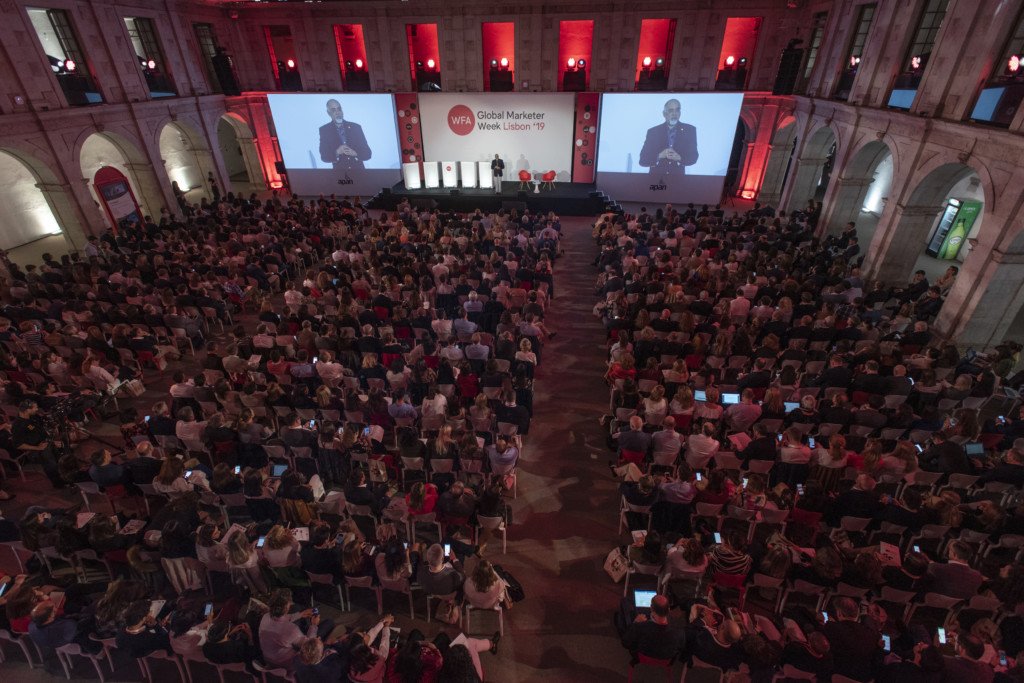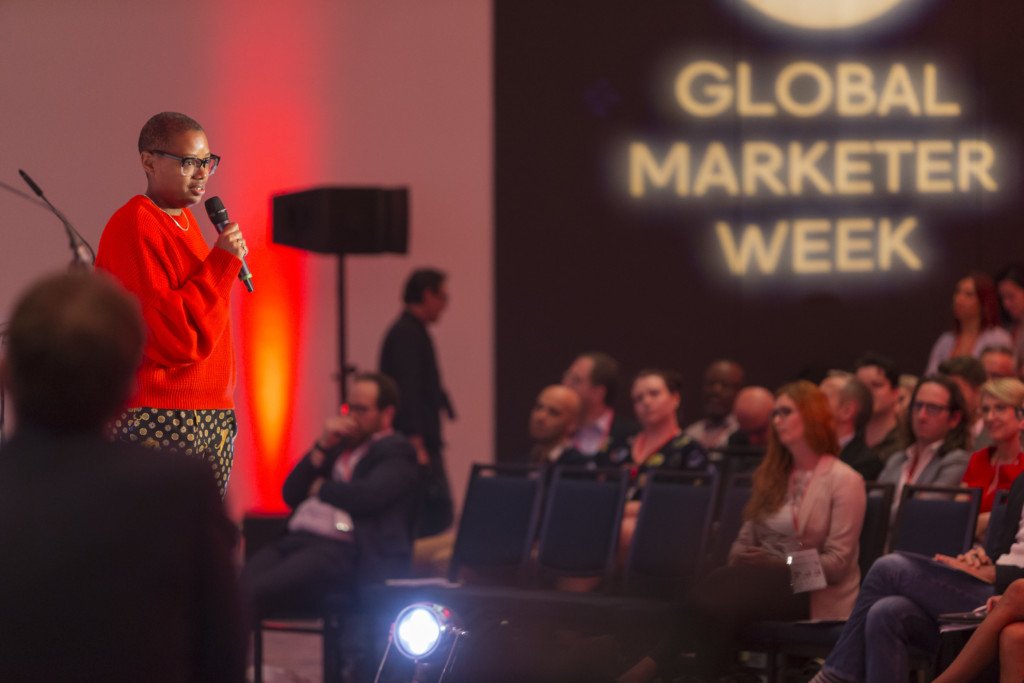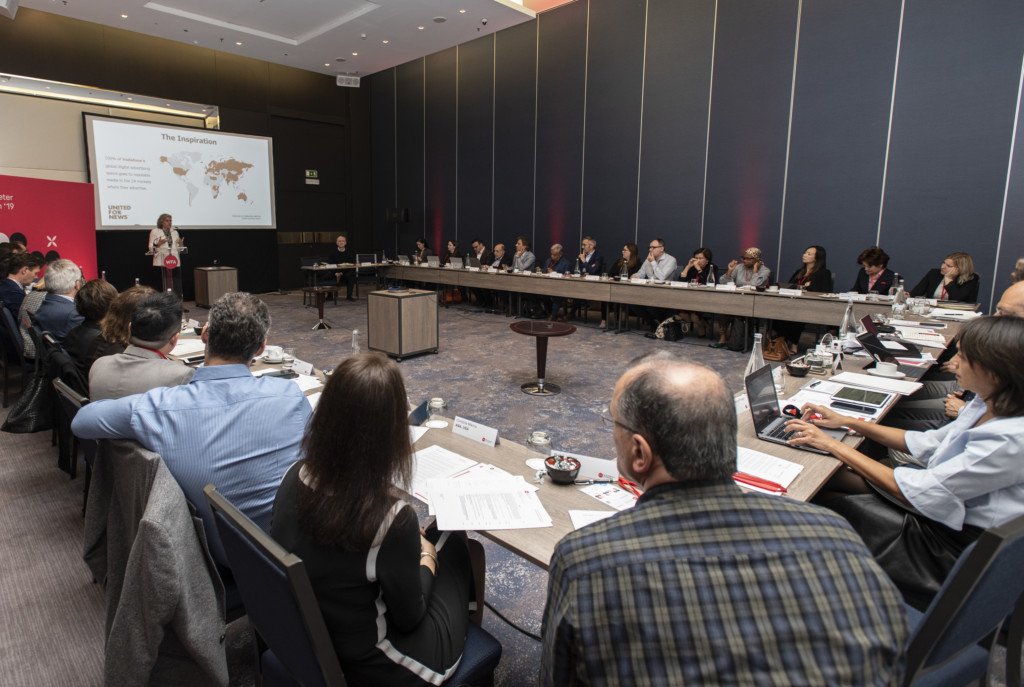Get analysis, insight & opinions from the world's top marketers.
Sign up to our newsletter.
People are what matters in marketing and Global Marketer Week in Lisbon brought together more than 1,000 from more than 35 countries. Stephan Loerke, WFA CEO, reviews his highlights from the week.

Global Marketer Week 2019 was a resounding success. A sold-out conference, over 1,000 people attending 10 events across four days, including the showpiece Global Marketer Conference, and a real buzz and sense of purpose.
There was a common thread throughout. Putting People First was the title of a report we released at the Better Marketing session. Keith Weed, our keynote speaker, told the Global Marketer Conference the next day to stop thinking of people as ‘consumers’.
“We talk about plumbing and problems,” said Geoff Seeley, Airbnb’s Global Marketing Director. “Let’s talk about people and art.” Again and again, experts reiterated the need for more creativity and innovation. There was a strong sense that the industry has been focused on too much logic and not enough magic. Rebalancing this equation will be key to reconnecting with people and building longer term trust in our brands.
And doing this will require action across a number of areas. The good news is that there are signs of progress in four in particular:
It’s very exciting that 73% of people globally, according to 2019 Edelman’s Trust Barometer, believe a company can take actions that both increase profits and improve economic and social conditions in the community where it operates. We got a real taste of brands trying to rise to this challenge throughout the week. We witnessed how brands can be a force for positive social change, how they can be a catalyst for positive gender and ethnic portrayals, how they can change the web for the better and how they can quite simply deliver meaningful and valued human experiences. We just need to remember that these same people are increasingly discerning and more demanding. They judge brands on their authenticity. They expect brands to behave consistently across time and across all the facets of the business when they do sign up to support a given cause. And they need to stick with it for the long term.

Belinda Smith, Global Head of Media, Electronic Arts, made the case for how marketing can be a force for positive gender and ethnic portrayals
The Christchurch massacre was livestreamed for 17 minutes on Facebook Live and then shared millions of times across the Internet. This is the latest in a series of failures by social media platforms to meet their social responsibilities. Brand-owners have a moral responsibility to hold the Google-Facebook duopoly to account in ways that go far beyond questions of efficiency and effectiveness. In Lisbon we challenged those platforms to do significantly more to prevent them being hijacked by bad actors. Ultimately, brands do not want to fund hate nor be associated with platforms that sow division and violence. We hope and expect the platforms to do more.
Digital ad spend has overtaken TV ad spend globally and represents more than half of total ad expenditure in many markets. In Lisbon, Google, Facebook and Twitter joined forces with the WFA Executive Committee, pledging to work together with the global brand community to build a framework for global cross-platform measurement. There is still a long way to go but we’re off to a promising start. This could be a game-changer in terms of accountability for ad spend, and, maybe even more importantly, a breakthrough in reducing the random “ad bombardment” that Unilever CMO, Keith Weed, alluded to in his opening address.
At a time when quality journalism is increasingly under threat due to falling ad revenues, brands can play a crucial role and direct part of their ad spend to quality publisher sites. United for News, an NGO supported by the World Economic Forum, showcased a new tool to the WFA Executive Committee, which will be rolled out by end of the year. It will provide robust and independent criteria for brands, enabling them to make informed choices about where they place their ads. Many CMOs expressed interest and the NGO signed up a number of big brands in Lisbon.
As an industry – and WFA – we have a lot on our plate. But that’s very exciting. We’re determined to step up to the challenge and drive the change that is needed.
We’ll continue to work with our national advertiser associations and our industry partners to put people first in all these critical areas.